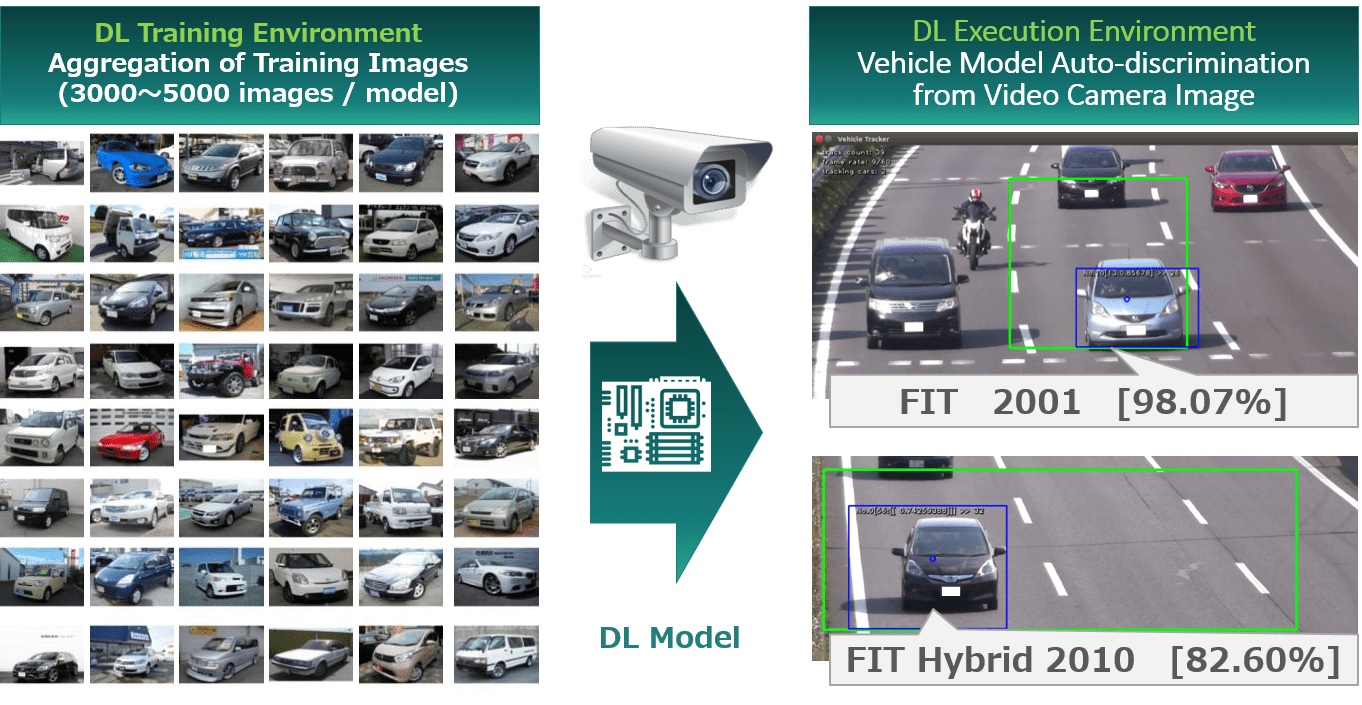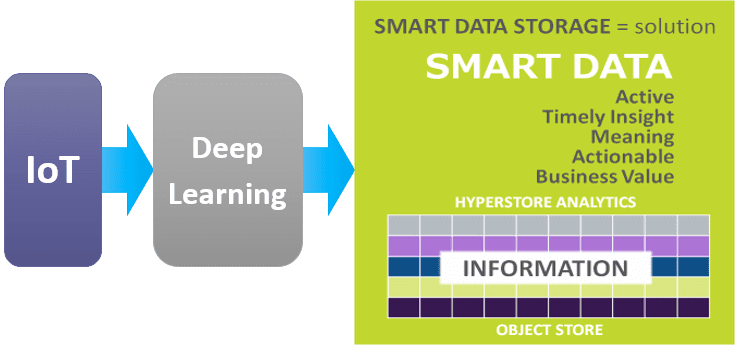In case you missed it, we recently announced a project with advertising giant Dentsu, QCT (Quanta Cloud Technology) Japan, and Intel Japan. Using deep learning analysis and Cloudian HyperStore’s smart data storage, we’re launching a billboard that can automatically recognize vehicles and display relevant ads.
The system has ‘seen’ 3,000-5,000 images per car so that it can distinguish all the various features of a particular car and identify the make, model, and year with an average 94% accuracy. For example, if someone is driving an older Mercedes, the billboard could advertise the latest luxury car. Or, if someone is driving a Prius, then the billboard could show eco-friendly products. It’s important to note that none of this data is stored – it is simply processed and then relayed into a relevant ad.
 Our smart data system sifts through thousands of images to accurately identify vehicles
Our smart data system sifts through thousands of images to accurately identify vehicles
You can also turn to this piece from CNN Money to learn a bit more about the project. The first billboard will be up and running later this year in Tokyo.
Broader Potential for Innovative Technology
One of the reasons why this technology is possible is through the use of metadata. Typically, big data is just stored passively for future analysis. Because this data is unorganized and untagged, it requires a good amount of effort in order to discover and pull out specific information.
Object storage, on the other hand, can have metadata tags attached to them. We run the data through real-time classification and auto-recognition/discrimination, which means these metadata tags are attached on the fly. As a result, we use this ‘deep learning’ to turn big data into smart data.

So what are the implications of this technology beyond advertising? There is potential for tremendous applications of deep learning in other fields, such as improved object recognition for self-driving cars, higher quality screening for manufacturing equipment, or even better tumor detection in MRIs.
Still skeptical? Sign up for a free trial and test out our smart data storage for yourself.





